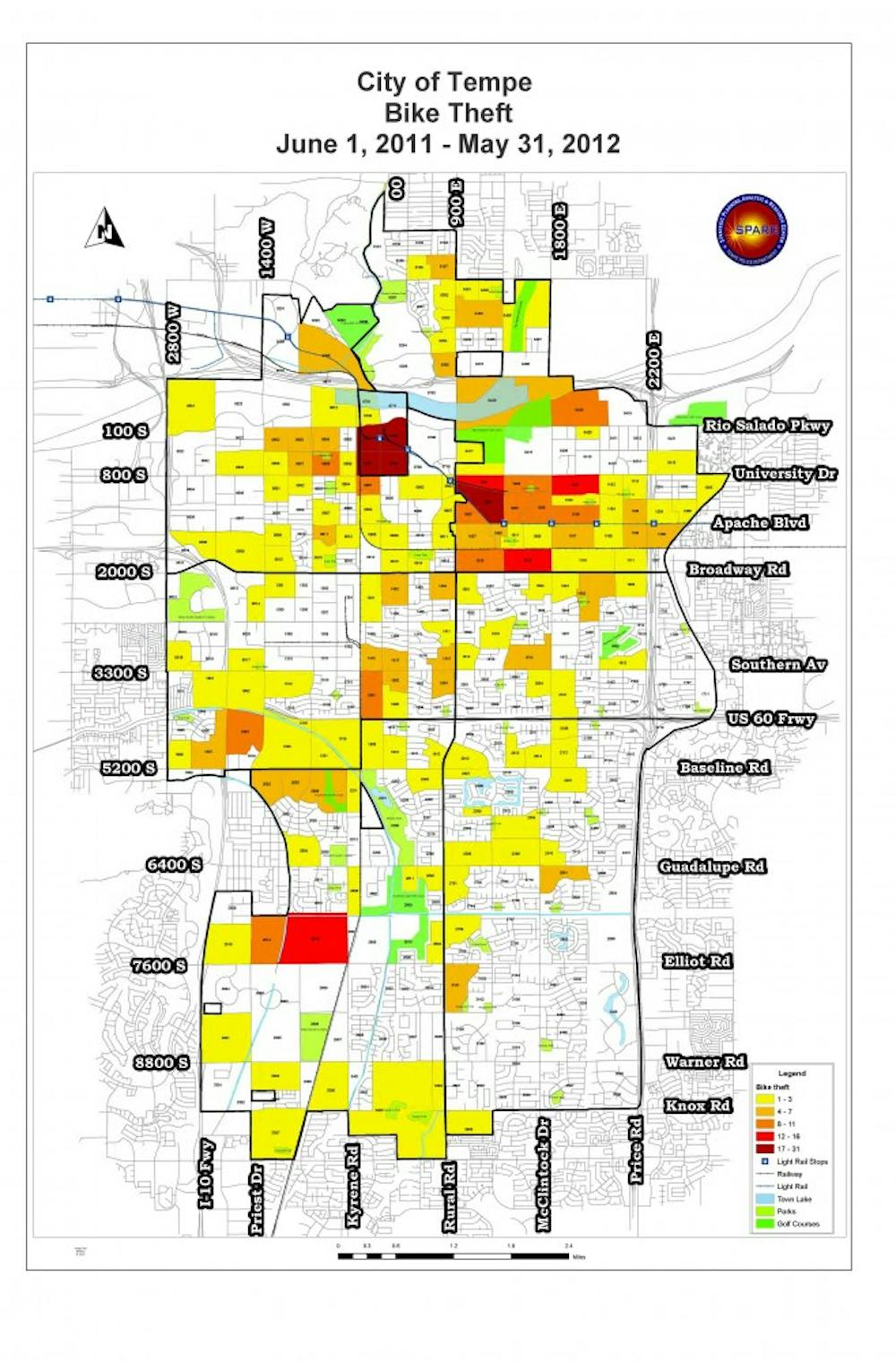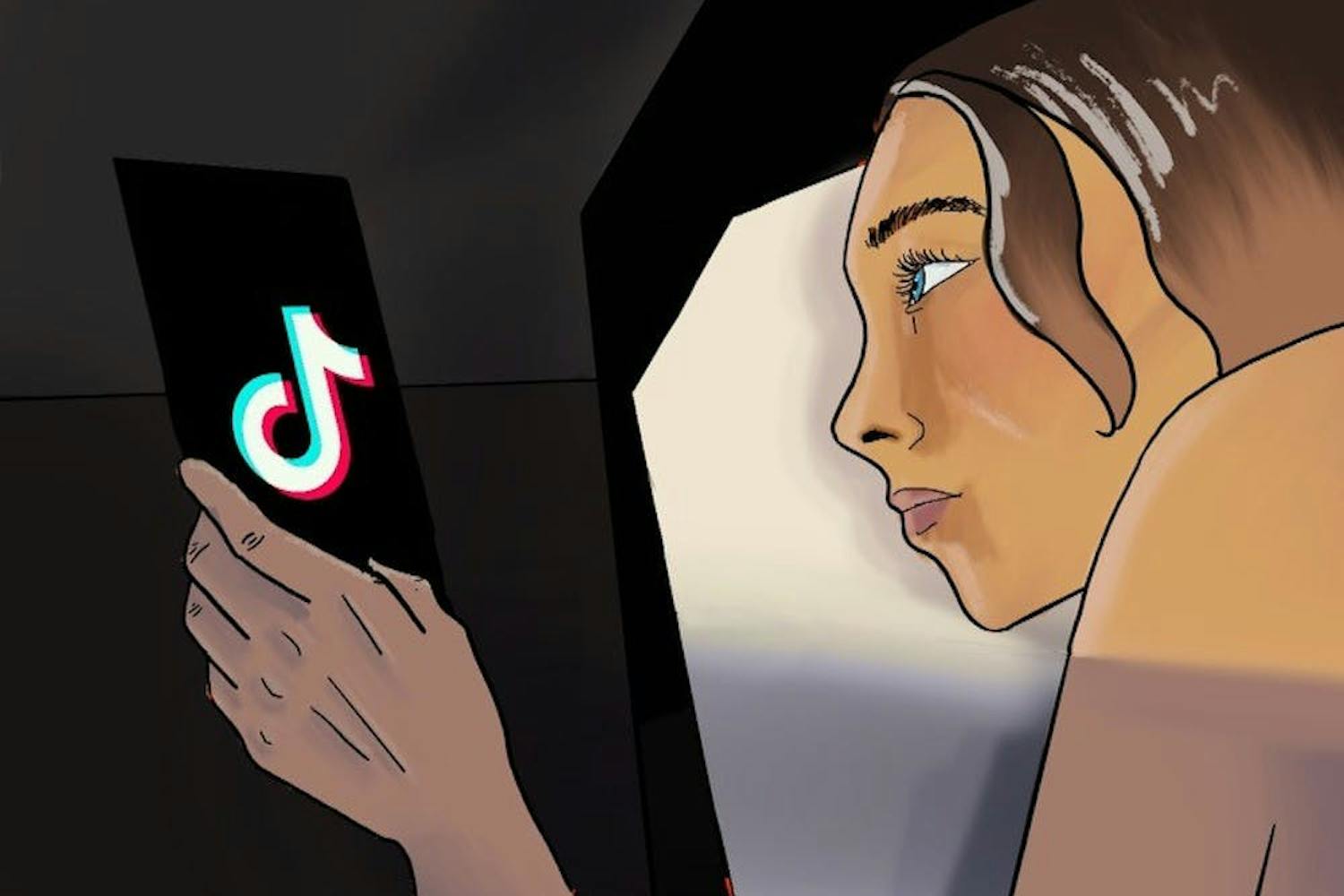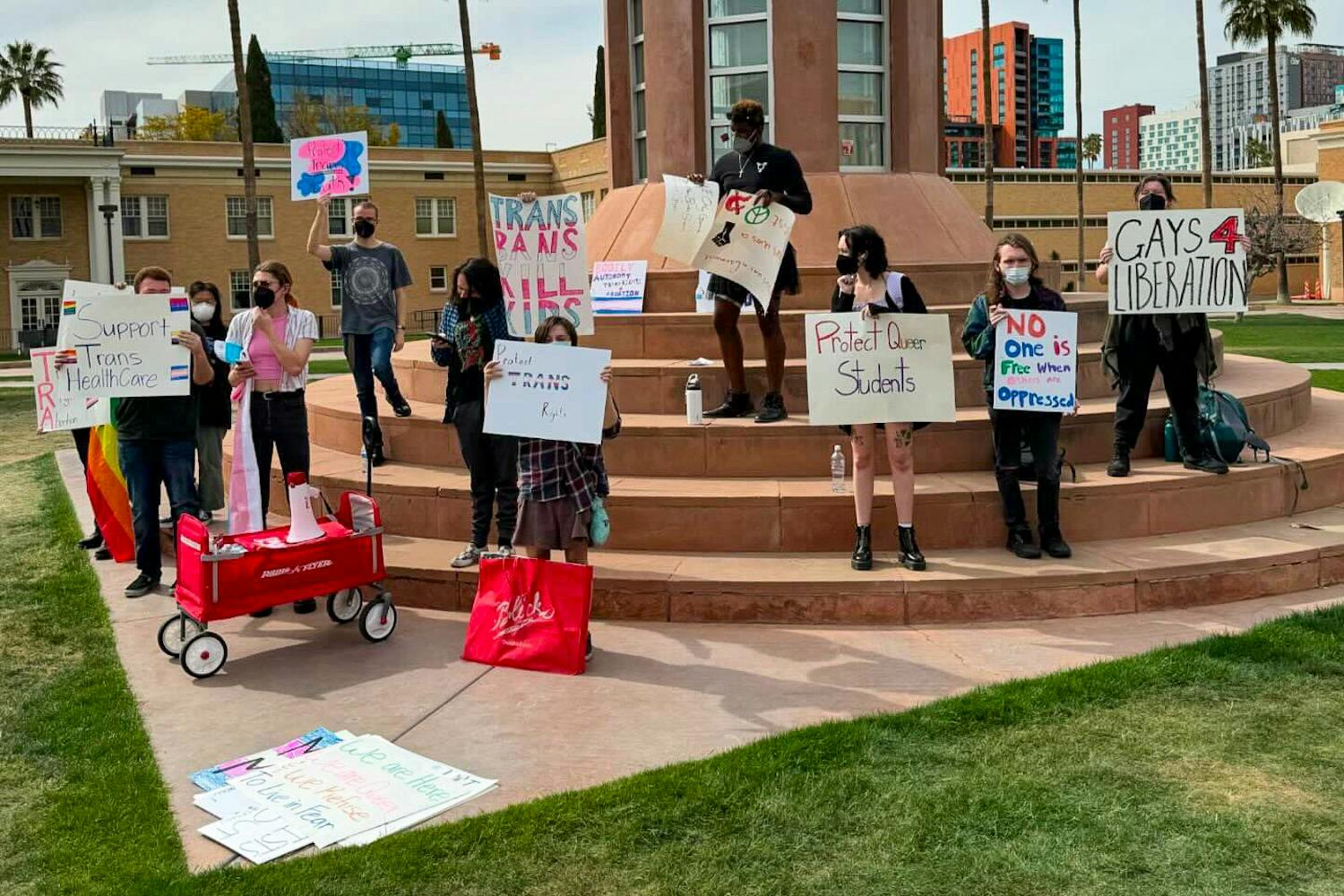“Green” is Tempe’s buzzword. It decorates the city’s marketing campaigns for public transportation and drives ASU’s efforts to curb its carbon footprint.
But as more residents and students take to two wheels rather than four, bike theft remains an underreported problem on the rise in Tempe and continues to be a high priority for ASU Police.
For bike theft that is reported, statistics paint an unusual picture.
Repeat offenders steal bikes in broad daylight from high-traffic areas and most thefts are condensed in the areas surrounding the Metro Light Rail, according to statistics compiled by the Strategic Planning, Analysis and Research Center (SPARC) staff of the Tempe Police.
One of Tempe’s hotspots is the area surrounding the intersection of Mill Avenue and West Fifth Street, which includes the light rail stops Mill Avenue/Third Street and Veterans Way/College Avenue.
In less than a mile surrounding that intersection, Tempe saw up to 120 bike thefts a year.
Another major hotspot included east of the University Drive/Rural light rail stop. The hotspots continue to concentrate in only one major intersection away from the main Metro line.
Tempe bike theft is classified in the same category as property theft; meaning if a thief were to steal a high-end cruiser, it would be the same as stealing a first edition chemistry textbook. Yet even if the law equates both items, the value loss for some residents is not the same.
Ryan Guzy, president of nonprofit advocacy organization Tempe Bicycle Action Group, said the value of a person’s bike increases with utility, and when a bike is stolen, it’s not just the dollar value that is lost.
“These people can’t go to work, they can’t go to school, they can’t run their errands,” Guzy said.
Tempe City Councilman-elect Kolby Granville echoes Guzy’s point of view.
“If you steal someone’s car, you’re actually stealing their ability to make a living,” Granville said. “The value of the item is greater than the dollar of the item.”
During his campaign, Granville asked an audience of 250 to raise their hand if they or someone they knew had recently experienced bike theft. Every hand was raised, said Granville.
“If you pay more for the bike than the U-Lock, then you’ve made a mistake,” Granville said.
Granville has researched and compiled three possible solutions to present to the council after he’s sworn in on July 2.
The first is to make changes to parking structures, which can include credit card swipes for gated sections with surveillance cameras. The changes can also include bike lockers similar to those at UA, which cost $90 per year to rent.
Granville said UA adds about 10 lockers a year — and every year — there’s a waiting list.
Granville is also proposing that the city begin treating bicycles not just as human-powered transportation devices, but as an essential commodity for a person’s livelihood. This theory is what classifies stealing a car a felony.
By changing Tempe’s approach to bike theft, Granville said it would take away a thief’s “rational economic choice to steal.” It would also deter repeat offenders – Granville’s third target to changing bike theft.
Granville said the city should target repeat offenders who make a living from stealing a mass quantity of bikes rather than those who commit a one-time “crime of impulse.”
If ASU Police arrest a person suspected of bike theft at least twice, the offender is cited internally for trespassing, said ASU Police Department Cmdr. Jim Hardina.
Yet even with increased enforcement and punishment, bike owners could also be at fault.
According to ASU’s data, only two out of the 481 reported cases involved properly locked bikes. Cable and U-Locks are recommended to deter theft, as well as registering bikes upon purchase to increase chances of recovery.
Registering serial numbers allows police to prove a bike is stolen, rather than pitting the owner’s word against that of the supposed thief.
Last year, ASU registered 750 bikes. Hardina said ASU Police plans to significantly increase this number by setting up laptops during move-in days to register students’ bikes. ASU Police will also begin to use bait bikes equipped with GPS to track the bike and the suspected thief.
Hardina said freshmen are especially vulnerable to bike theft as they are bombarded with new information, prompting the department to educate parents.
“We’re trying to ramp up that education right off the bat to avoid that spike in the beginning of the year,” Hardina said.
Officers start spreading awareness in the summer because by fall, it’s too late.
More bike thefts occur in September than any other month, Hardina said, and are mostly taken on weekdays.
According to statistics compiled by ASU Police, the cluster of bikes outside of Noble and Hayden libraries and the bike racks close to the Student Recreation Center and Memorial Union are campus targets for thieves.
On average, bikes were taken between 1 p.m. and 6 p.m.
Mehdi Farsi, co-founder of Tempe-based bike company State Bicycle Co., said he isn’t surprised most thefts occur near the Metro Light Rail and the ASU campus.
Farsi’s bike was recently stolen in Tucson from a bike rack on top of his car. The insured bike was replaced at no cost to him, but he said not all owners are so lucky.
To help ease the financial burden on troubled riders, Farsi’s shop offers a $100 discount on the purchase of a new bike if the customer brings in the police report proving his or her bike was stolen.
Farsi said he receives three to four police reports per week.
The data collected by the ASU and Tempe police departments sheds light on frequency and location, but only includes reported thefts. The actual number is likely much higher, especially when factoring in stolen parts.
Granville said Tempe and ASU take bike theft seriously.
“What I don’t think they understand is that there is a greater value than just a dollar amount as it relates to people and the type of culture that Tempe is trying to create,” Granville said. “And the lynch pin in all of that, is believing your bike is going to be there when you get out of the building.”
Reach the reporter at uvitkovs@asu.edu






